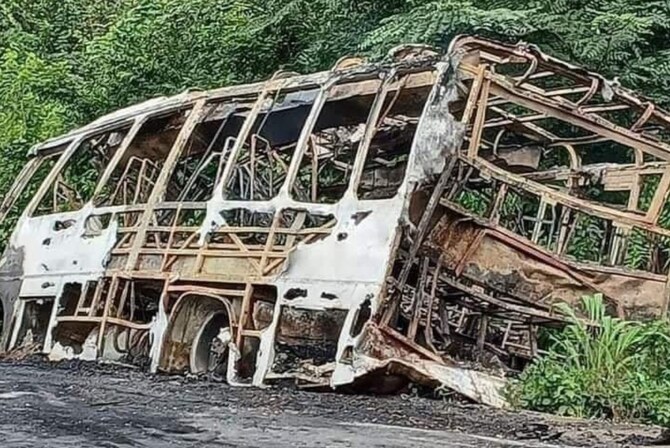The accident, which involved a passenger bus returning from Mali and a fuel tanker, highlights ongoing road safety challenges in Ivory Coast and across Africa, where road accidents remain a persistent and deadly threat.
The tragic incident occurred around 11 PM when the fuel tanker collided head-on with the passenger bus.
The impact triggered a fire that rapidly engulfed both vehicles, trapping the victims in the flames.
Emergency services, in coordination with local authorities, rushed to the scene to evacuate the injured to nearby hospitals, but the human toll was severe.
A Persistent Problem in Ivory Coast
Road accidents are a common occurrence in Ivory Coast, driven by factors such as poor road conditions, speeding, disregard for traffic laws, and inadequate vehicle maintenance.
Despite efforts by Ivorian authorities to raise awareness among drivers and improve road safety, the situation remains dire.
Each year, thousands fall victim to traffic accidents, with a significant number involving public transport vehicles like buses and trucks.
Road Tragedies in Africa: A Growing Crisis
Ivory Coast is not alone in facing this challenge. Across the African continent, road accidents rank among the leading causes of death.
According to the World Health Organization (WHO), sub-Saharan Africa has some of the highest road traffic mortality rates globally.
The lack of modern road infrastructure, ineffective enforcement measures, and poor vehicle maintenance contribute to this crisis.
African countries often record road death rates far exceeding those of other regions, with accidents frequently involving poorly maintained buses, shared taxis, and trucks.
Similar issues plague other African nations. In Kenya, for instance, accidents involving buses known locally as “matatus,” and in Nigeria, crashes involving fuel tankers on poorly maintained roads have frequently resulted in heavy casualties.
Initiatives to Improve Road Safety
In response to the ongoing crisis, Ivorian authorities, along with other African nations, have launched various initiatives to enhance road safety.
Regular awareness campaigns and traffic control operations are conducted to remind drivers of the dangers on the roads.
However, upgrading road infrastructure and enforcing stricter safety regulations remain critical challenges that need to be addressed to reduce road casualties.
This latest accident underscores the urgent need for continued investment in prevention and modernization of infrastructure to tackle the growing transportation challenges in Africa.




